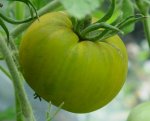 I was recently reading Anne Morrow Lindberg’s first book, North to the Orient which details her and her husband Charles’ pioneering flight between Washington DC, and Nanking, China via Point Barrow, Alaska. The trip, made in the summer of 1931, demonstrated that this direct route across the arctic was feasible. Their Lockheed built airplane, the Sirius, had a longer flight range than any other single-engine airplane at the time, but still had to make 7 refueling stops before it reached Japan. One of those stops was Point Barrow – the northernmost settlement in the United States.
I was recently reading Anne Morrow Lindberg’s first book, North to the Orient which details her and her husband Charles’ pioneering flight between Washington DC, and Nanking, China via Point Barrow, Alaska. The trip, made in the summer of 1931, demonstrated that this direct route across the arctic was feasible. Their Lockheed built airplane, the Sirius, had a longer flight range than any other single-engine airplane at the time, but still had to make 7 refueling stops before it reached Japan. One of those stops was Point Barrow – the northernmost settlement in the United States.
Their hosts at Point Barrow were the local Doctor and his wife (also his nurse). Anne writes of how warm, bright and inviting their home was. In a south facing window there was a window box, which did not contain pansies, or geraniums, but a single tomato plant, which bore a single, green tomato. The soil for the window box was hauled all the way from Nome, because the ground of Point Barrow is mostly frozen sand, which won’t grow much of anything but moss. “That tomato won’t ever ripen you know – it hasn’t enough sun – but the leaves grow and we can smell it. Even the smell of growing vegetables is good to us,” she explains to an admiring Anne.
I wanted to say to the Doctor’s wife of Point Barrow, Alaska: “Ma’am, you can cut that green tomato into thin slices, dip them in cornmeal batter, and deep fry them – yum, yum!” But I understand growing a tomato plant in the Arctic so that you can have the smell of tomatoes around. I can’t imagine going without tomatoes. One of the great joys God has given us – exciting touch, taste, sight, and smell is to go out to the garden in August with a sharp pocket knife, a clean handkerchief, and a shaker of salt, and eat ripened tomatoes right off the vine – which is something I haven’t done since I was a boy, and then only a few times, and the pocket knife was my granddad’s. But the smell of a garden tomato just off the vine brings it all back.
Smell is the only one of our senses connected directly with our limbic brain, and thus opens up memories more quickly and palpably than any of our other senses. I have, in the back of my closet, the old blue cardigan that my granddad frequently wore, and even now, more than a decade after his death, if I breathe deeply enough, can still smell him, and he is there in a way that no memory can conjure. I used to visit a WWII veteran who never married. He had been engaged when he went into the Navy, and into the Pacific, but had received a “dear-John” letter several months after his deployment. It was a heartbreaking letter from which he never, even as an old man, fully recovered. He repeated the story to me often, and the thing he always mentioned about that letter which made it such a crushing blow was that she had scented it with her perfume – an expensive perfume he had bought her, a perfume she wore only for him. He still had the letter, and claimed he could still smell the perfume, although I could not.
Heaven is a place John struggles to describe in the Revelation. He is burdened with the limits of human language, and the human mind. Having no other points of earthly reference, John has to describe what he experiences in terms of our senses. Sometimes he is reduced to describing simple shapes and colors – as when he tries to describe the throne of God (Revelation 4.1ff). John describes sights, and sounds, and smells too.
In Revelation 5.8 we are told there are four bowls of incense burning in heaven – and that the incense in those bowls are “the prayers of the saints.” There is something natural about this connection since the Hebrew word for prayer, and the word for smoke come from the same root. But it is not as simple as that. Just as the Lamb is at the throne of God, and just as the angelic host surrounds the throne of God, we are present as well – not bodily present, of course, but palpably present nonetheless. Heaven smells like our prayers.
A tomato is most readily associated with a color – red. But the Doctor’s wife of Point Barrow, Alaska needed the smell of a living tomato plant to conjure up for her all she was separated from there in the frozen north. Prayer is most naturally associated with a sound - the voice (see especially Romans 8.14-17, 28). But the incense of our prayers makes us present at the throne of Grace.
Heaven smells like our prayers – through our prayers we are there, inescapable. Let us then never doubt God’s attentiveness to them, nor our nearness to Him.

